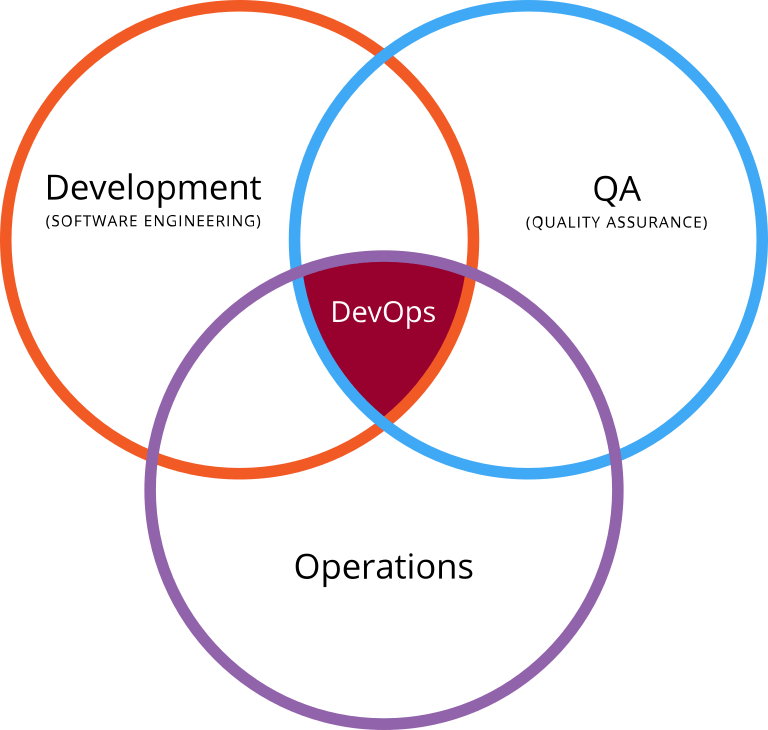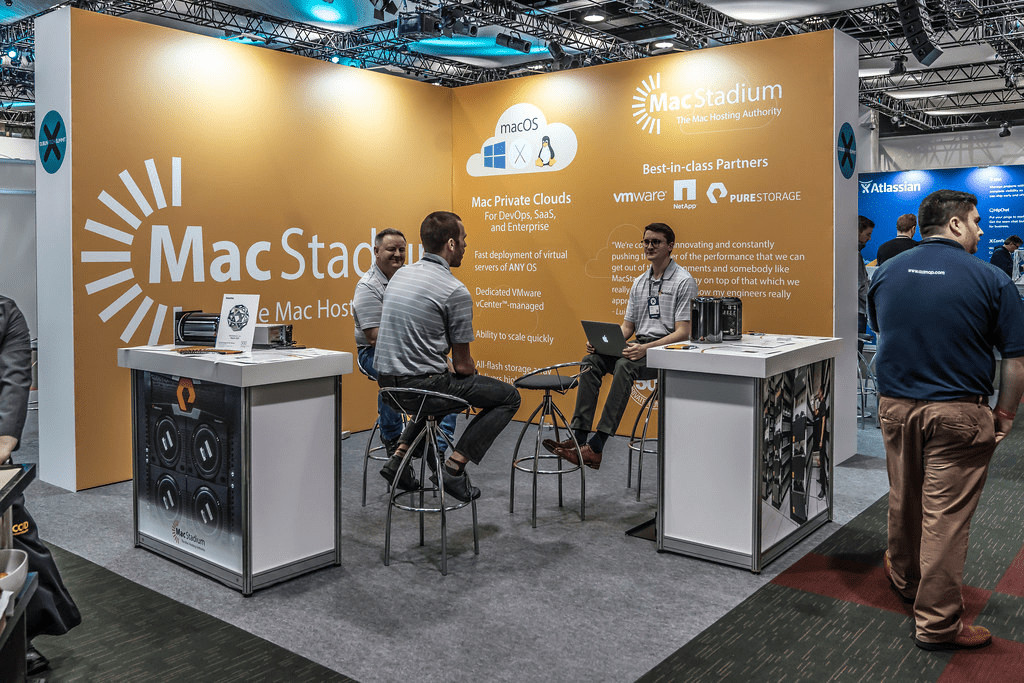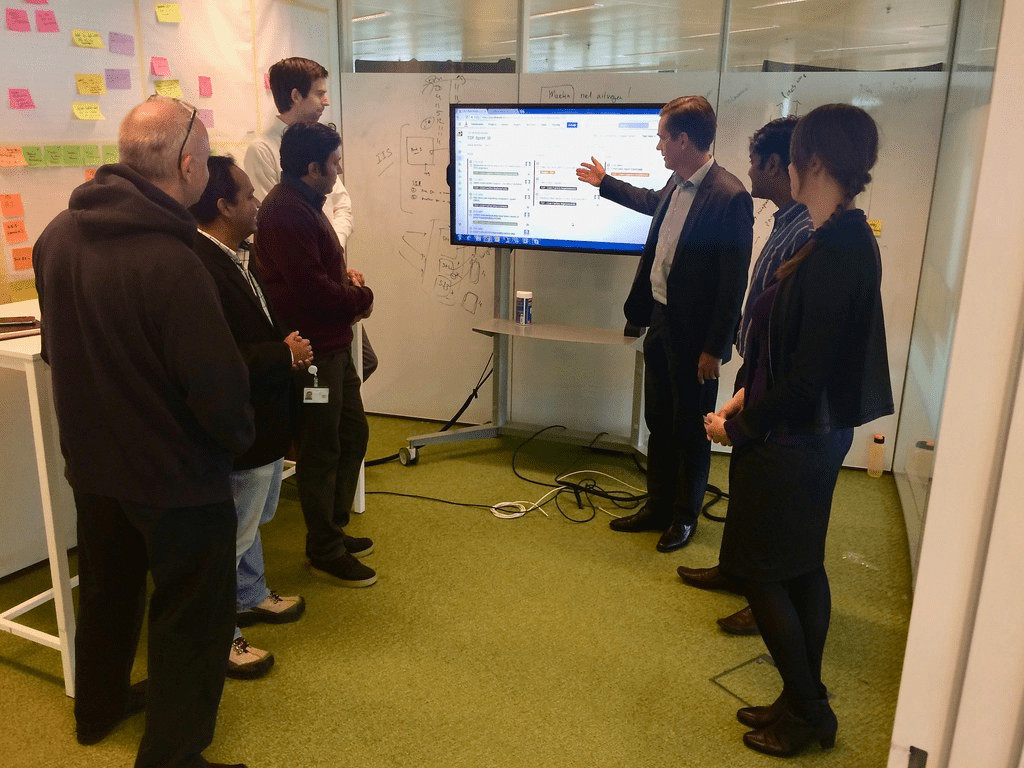DevOps engineers are always in high demand in the IT market. Businesses are encountering a scarcity of individuals with the required skills for this position.
This engineering sector is becoming an essential role of any software firm. It brings together IT experts and computer programmers to enhance workflow.
These engineers in this field at top IT organizations are paid well and receive various bonuses and incentives. As a result, several engineers are particularly interested in this sector.
Look no further than this article! It will show you the necessary steps and skills to work in this IT sector.
Let’s check it out!
What Is DevOps?
DevOps is the combination of development and operations. It is a manner of working and a community where operations engineers and developers collaborate to attain a common purpose.
There used to be a clear distinction between development and operations in conventional computer programming.
Developers were mainly tangentially engaged in the functioning of the program they built and had no idea of how and where, or how others use it.
On the other hand, operations would have no idea of the program’s creation and working manner and could only hope it would work as intended.
This concept throws two groups against one another: one seeking stability while the other seeking change, which causes updates not to be regular.
DevOps tries to address this issue by fostering closer collaboration between operations professionals and developers and overlapping duties.
With the presence of the sector, engineers can perform complete changes and updates regularly and quickly.
It contributes to better organizational outcomes, such as higher software products, disruption, and faster delivery of your initiatives to your customers.

What Are DevOps Engineers?
A DevOps engineer refers to an IT expert who understands the program development process from beginning to end.
They must comprehend why the company had to go from one model to another, the prior system’s drawbacks, and the advantages of an updated or new one.
The engineers in this area should also be able to use various automation technologies to create CI or CD pathways.
In comparison to the last stages, DevOps engineers place a greater emphasis on the management step.
It’s critical to keep an eye on the products to grab additional issues, patch them, and send the updated model directly to the customer.
These engineers work together with developers and operations groups to provide high-quality services quickly as feasible.
Other options for a DevOps engineer include:
- DevOps architect
- Software tester
- Automation engineer
- Integration specialist
- Release manager
- Security engineer
What do DevOps engineers do? They can play a variety of roles. However, several responsibilities are similar to all of these roles:
- Spin up and automate infrastructure
- Create and configure container orchestrators
- Write CI or CD Pipelines
- Create well-thought-out microservice architectures
- Build DevOps strategies
- Create observability systems and suggestions for a variety of teams
- Ensure the security of all infrastructure and workloads

How To Become A DevOps Engineer
Below are valuable tips for working in this position. Let’s read to learn more!
1. Gain A Bachelor’s Degree
Are you thinking about pursuing a career in this industry? A bachelor’s degree in a field relating to math, computer science, and electronics engineering is mandatory.
For instance, you can take an online Science in MIS (Management Information Systems) course at a college like Maryville University to get a bachelor’s degree.
This degree will prepare you for a variety of IT vocations. You’ll understand how to put knowledge to use in starting a company or improving the operations of one that already exists.
A standard MIS course will teach you how to build information systems and project management skills to accomplish them effectively.
A course offering an MIS degree usually involves internships or a project report, allowing you to put what you’ve learned into practice.

2. Gain A Master’s Degree
A master’s degree will be necessary if you plan to enhance your profession in this position.
A master’s degree course, like Maryville University’s online master’s in computer programming, will help you be a top-tier DevOps engineer.
If you are working as an IT professional, a master’s degree can help you reconcile your employment and education since you will complete it in as little as a year.
Courses in a master’s degree in a computer development program can help you strengthen your abilities in numerous elements of program development.
3. Learn Essential Fundamentals
DevOps is a broad term that encompasses nearly all technology and procedures. As a result, technological skills are essential for securing a job.
Here are the essential skills you need to grasp if you want to work in this position:
Develop your understanding of industry-specific coding languages
When working in this position, you’ll utilize different plugins and tools for the continuous integration and delivery (CI/CD) pipelines.
By producing code, executing tests (CI), and privately releasing an upgraded version of the software, the CI/CD pipelines automate the application delivery process.
Automated pipelines assist in eliminating manual mistakes and allow for faster product iterations.
If you know how to use some popular coding and programming languages, you can build adaptable, scalable, and error-free code.
Learn about various operating systems
You will become more creative in your development if you have a solid knowledge of the Operating system ideas.
You may write speedier programs, interface with I/O devices, and communicate with other operating systems.
Process management, virtualization, sockets, I/O management, threads, concurrency, and file systems are excellent learning things.
Because these roles deal with Linux, you should think about taking the Linux Administration Course to learn more about the operating system.
Learn how to manage servers
Instead of managing separate servers, you’ll be responsible for a group of them.
It will be beneficial to become familiar with website servers such as Nginx, which may function as a reverse proxy, HTTP cache, load balancer, and mail proxy.
Security and networking
Because the business is more integrated than ever before, security and networking are crucial fundamentals for a DevOps engineer to understand.
It’s best to learn basic networking fundamentals such as DNS firewalls, ports, and IP addresses. Also, be familiar with standard networking protocols such as FTP, HTTP, TCP/IP, and SSH.
Putting your machine together
You should know how and when to build your computer if you want to work in this sector.
The engineers in this business must be capable of configuring web servers such as Tomcat, Apache, and IIS.
They need to be familiar with the cache server, load balancer, firewall, and reverse proxy, among other things.
Learn how to code infrastructure
Among the most critical components of being a DevOps engineer is learning to code infrastructure.
It would be best to learn about containers, infrastructure provisioning, and configuration management mechanisms.
Learn how to use CI/CD tools
These engineers will usually need to configure a CI/CD pipeline.
Although there are several CI/CD solutions to choose from, such as Jenkins, TeamCity, and Drone, it’s preferable to start with Jenkins.
It’s the most popular and presumably most advanced CI/CD tool.
Find out how to keep track of your infrastructure and software
DevOps engineers are in charge of overseeing software and applications and creating and executing them.
Based on your business’s chosen tool, learn to utilize web app monitoring and management software such as Datadog, New Relic, Nagios, and Monit.
Find out more about cloud service providers.
In the foreseeable future, the Cloud will keep going up in prominence. You’ll need to migrate your apps to the cloud drive sooner or later.
As a result, brush up on cloud platforms like Amazon Web Services, Terraform, Microsoft Azure, and Google Cloud Platform.

4. Create A Resume
A well-written resume with a good structure may make all the difference during the recruitment process.
Since these engineers must possess specialized soft and hard skills, a good CV highlights these abilities via job experience.
Reading other engineer examples of CVs and application forms and using their terminology and format as a reference while creating your own is a fantastic idea.
Utilize your job experience to find roles that apply to a DevOps workflow if you have already worked in software development and operations.
You should make sure you’ve highlighted any qualifications that the company stated in the job description, such as Linux knowledge.
Proofread your resume after you have completed it the next day. A fresh viewpoint can help you become a more successful editor.
What Are The Needed Skills A DevOps Engineer Must Have?
Here are some needed skills if you want to gain a position in this IT field:
Collaboration and communication
Given the fundamental nature of DevOps, collaboration and communication are critical to success.
They are critical in breaking down silos between Development and Operations teams, aligning goals with business goals, and implementing DevOps culture throughout departments.

Knowledge of Necessary Tools
The effectiveness of DevOps is solely dependent on the tools used at various stages of implementation.
Security Skills
The pace of risk frequency corresponds to the rate with which DevOps enables deployment.
Given this limitation, the typical technique’s security as a distinct process could not work.
It’s time DevSecOps comes into play, allowing security to integrate into the SDLC from the outset.

Automation Skills
A DevOps engineer needs to automate the complete pipelines, such as CI/CD processes, software performance monitoring, settings, and infrastructure.
Noble Thoughts and Soft Skills
Simply knowing how to code and automate isn’t enough. This IT field necessitates a distinct you, one with soft skills, adaptability, self-motivation, and a willingness to learn.
Coding Skills
The engineers in this field should have coding expertise.
Knowing some popular coding and programming languages such as Python, Java, Ruby, Javascript, Bash, PHP, Node.js, and Shell is better.

Testing Skills
Testing is critical to the success of DevOps. Samples that execute without error will be essential in the automation workflow.
Cloud Skills
DevOps and Cloud are inseparable. Their results affect each other’s efficiency and performance.
While the DevOps approach pushes a procedure, the Cloud facilitates it by supplying infrastructure for testing, deploying, and releasing code.
Proactiveness
The experts and engineers will have to be proactive and passionate about their job, reflecting their efficiency and results.

FAQs
What Is The Time Investment To Be A DevOps Engineer?
Qualifying as a DevOps engineer might take years.
For example, to work as an AWS DevOps engineer, you must experience five years to learn about technical skills and two years to grasp programming expertise.
Is It Hard To Be A DevOps Engineer?
It’s not too hard to become a DevOps engineer, but it necessitates a shift in attitude and practice.
Does DevOps Require Coding?
The answer is yes! Although some coding experience is crucial for team members, it is not mandatory for all of them.
Because this area encompasses the whole software lifecycle, from design to management, that’s the case. Coding is necessary to implement a DevOps paradigm.
Is DevOps A Good Career?
Yes! According to our research, the average income for this position is $117,660 per year.
This area is a fantastic method that several IT organizations are using to supply their clients with more dependable and speedier solutions.
Can A Non-Technical Person Learn DevOps?
This sector draws people having technical and also non-technical backgrounds. It means a non-technical person can pursue this industry.
Can I Get A Job In DevOps With No Experience?
Yes, but it’s considerably challenging!
This sector requires a wide range of knowledge and abilities. As a result, you can acquire a position in this field with preparation.
You should learn and acquire knowledge related to this field to have chances of promotion in the future.

The Bottom Line
In short, to prepare for this employment, you need to gain mandatory certifications, acquire essential knowledge, and create an excellent resume to impress employers.
Hopefully, this post will be helpful for you. Thanks for reading!
